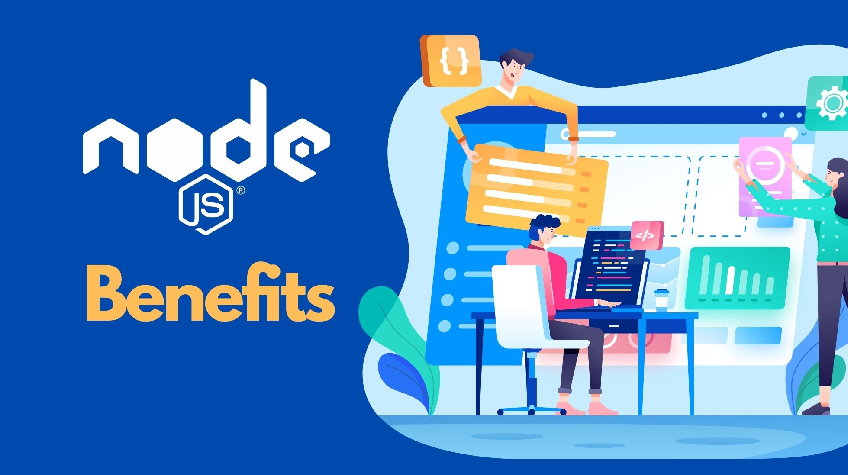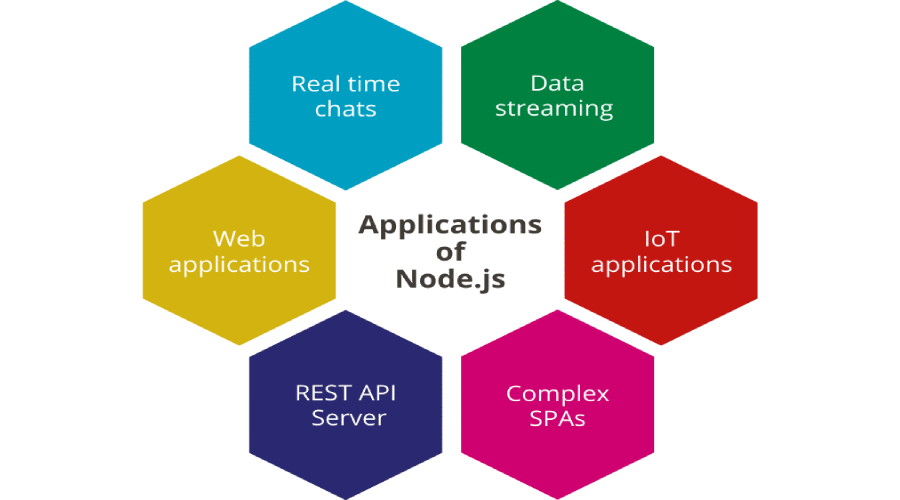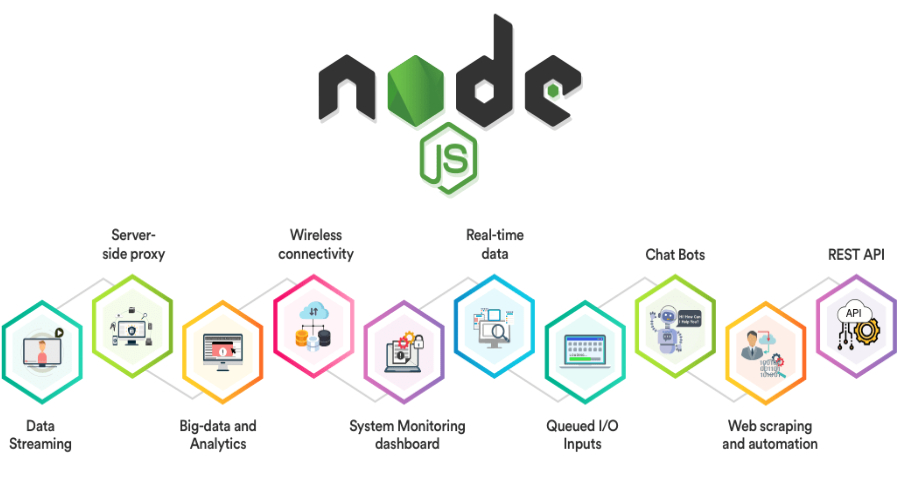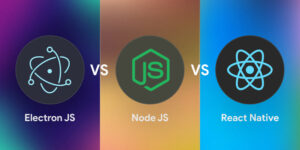
What is Node.js? Is Node.js worth using? Node.js is a widely used open-source JavaScript runtime environment that has recently gained immense popularity. One of the main advantages of Node.js is its ability to build scalable and high-performing applications. Node.js has become the go-to choice for building server-side applications and APIs (Application Programming Interfaces) due to its flexibility, speed, and ease of use.
What are your plans for developing an app from scratch? Are you looking for a fully functional app? If so, you need to choose the right tools, platforms, and languages or you can also hire Node.js developers to take care of your app.
If you’re working on a web application, you’re undoubtedly weighing the benefits and drawbacks of basing your stack on JavaScript and the tools that support it. And, once you start researching development platforms, you’ll almost certainly come across Node.js.
One of the main reasons why people use Node.js for building APIs is its high performance. Node.js has a non-blocking I/O model that allows it to handle a large number of concurrent connections without blocking the execution of the code. This makes it an ideal choice for building APIs that need to handle a large volume of requests. Node.js also has a small memory footprint, making it easy to deploy and scale.
Let’s dig deeper and find out how Node.js can help you build APIs. The following sections will help you determine whether this environment is the best for your app development. Also, is Node.js best in security practices or not and how to make the right choice.
The benefits of using Node.js for building APIs
Node.js has become a popular choice for building APIs due to its numerous benefits. Node.js is an open-source, cross-platform, and scalable runtime environment that allows developers to build fast and efficient APIs. Here are some of the benefits of using Node.js for building APIs:
1. High Performance
Node.js is built on the V8 JavaScript engine, known for its high performance. The engine compiles JavaScript code into machine code, making it fast and efficient. Node.js also uses a non-blocking I/O model, which means it can handle multiple requests simultaneously without blocking the execution of the code. This makes Node.js an excellent choice for building APIs that need to manage a large number of requests.
2. Scalability
Scalability is one of the most critical factors when building APIs. Node.js provides a scalable environment that allows developers to handle large amounts of data and traffic. Node.js uses an event-driven architecture that enables it to handle many concurrent connections. It also has a small memory footprint, making it easy to deploy and scale.

3. Easy to Learn
JavaScript is one of the most popular programming languages, and many developers already know it. Node.js is easy to learn, especially for developers already familiar with JavaScript. Node.js also has a vast community of developers, which means many resources are available for learning and support.
4. Large Ecosystem
Node.js has a large ecosystem of modules and packages that can be used to build APIs quickly and efficiently. Thousands of modules are available on npm (Node Package Manager), the world’s largest software registry. This makes it easy to find and use the necessary modules without reinventing the wheel.

5. Flexibility
Node.js is a flexible technology used to build various applications, including APIs. It can be used with different front-end frameworks such as React, Angular, and Vue.js. This flexibility allows developers to choose the best project tools and build applications that meet their specific needs.
6. Easy to Debug
Debugging is an essential part of the development process, and Node.js makes it easy to debug code. Node.js has built-in debugging tools that allow developers to debug code in real-time. It also has a built-in inspector that can be used to debug code remotely.
Related Search: 10 Best Web Scraping APIs use for Data Mining
7. Easy to Deploy
Node.js applications are easy to deploy, which makes them ideal for building APIs. Node.js applications can be deployed to various platforms, including Linux, Windows, and macOS. Node.js applications can also be deployed to cloud platforms such as AWS, Azure, and Google Cloud.
8. JSON Support
JSON (JavaScript Object Notation) is a lightweight data-interchange format commonly used in APIs. Node.js has built-in JSON support, making it easy to work with JSON data. Node.js can parse JSON data quickly and efficiently, which makes it an excellent choice for building JSON-based APIs.
9. Real-Time Applications
Node.js is well-suited for building real-time applications like chat and online games. Node.js uses web sockets, allowing real-time communication between the client and the server. This makes Node.js an excellent choice for building applications that require real-time updates.
10. Cost-Effective
Node.js is a cost-effective technology that can help companies save money. Node.js applications require fewer resources than traditional applications, which means they can be deployed on less powerful hardware. This can help companies save money on infrastructure costs.
Also See: How Exactly can Using Node.JS Assist cut down on the Cost of Development?
Conclusion
In conclusion, Node.js offers a number of features that make it an ideal choice for building APIs. Its high performance, scalability, flexibility, easy-to-learn nature, easy-to-deploy capability, built-in support for JSON, and cost-effectiveness make it a popular choice for building APIs. As such, it is no wonder that Node.js has become one of the most popular platforms for building APIs in recent years.







Nice post. I learn something totally new and challenging on websites